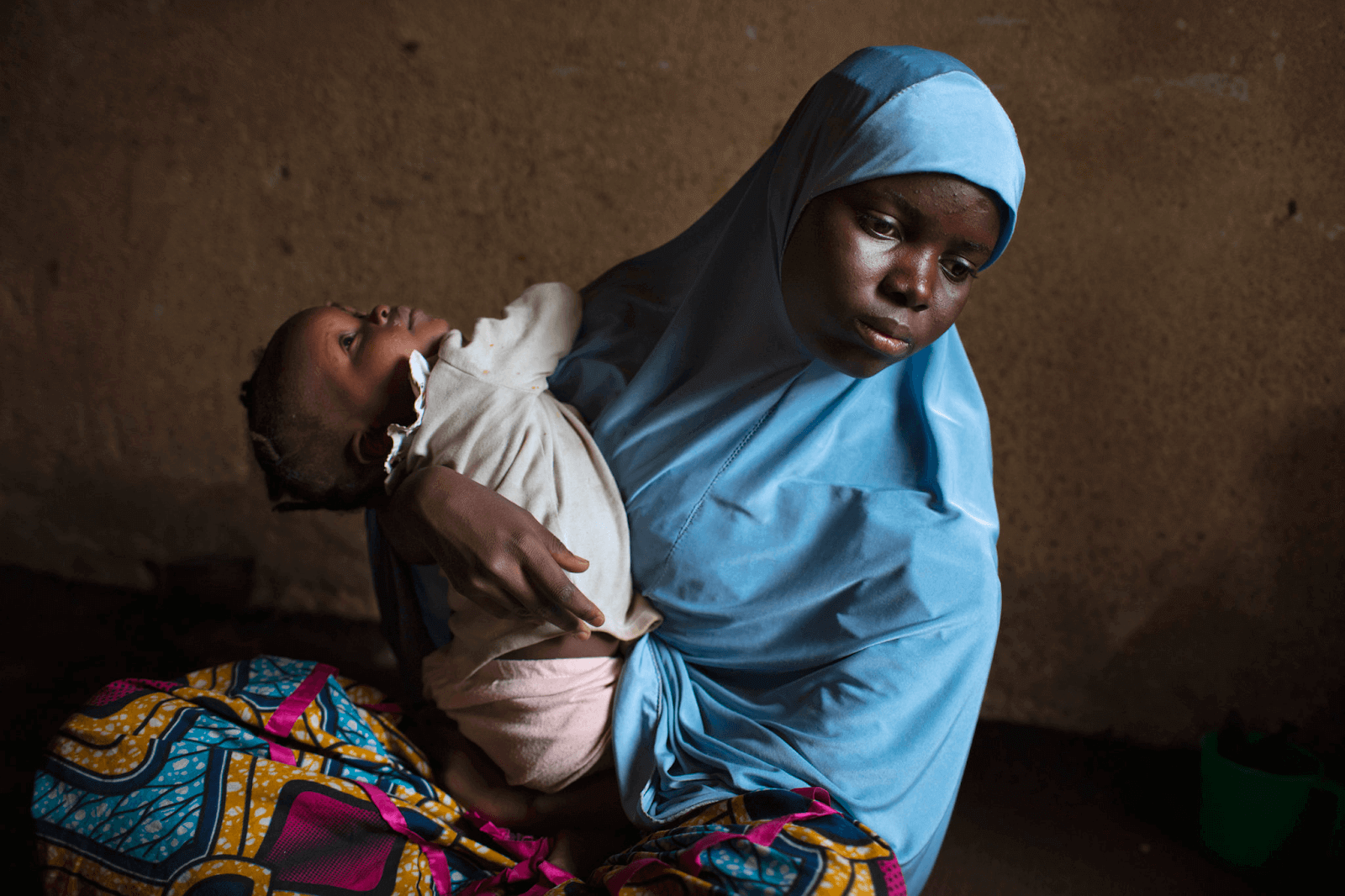Yahuza Umaru, 16, wakes up at 6 am nearly daily, ties his bowl around his neck, and shabbily walks barefoot around Mariri, a remote community in Kumbotso Local Government Area of Kano State, northwest Nigeria, begging for food.
Umaru is an almajiri in Kano. Here, an almanjiri refers to a boy undergoing quranic education under an Islamic scholar or teacher. Under the almajiri system, parents allow their kids aged between 4 and 12 to travel to distant locations to attain Arabic education under a scholar.
Most boys studying under the system have no access to formal education. Northern Nigeria makes up 69% of Nigeria’s 20 million out-of-school children. Over half of that number are almajiris who roam the streets of the north during school hours, begging for alms and food.
Umaru is originally from Zamfara State, where his family relocated to Kano due to insecurity.
But while in Kano, “My parents left me at (makaranta) school of Arabic. I have never seen them again, and we look for what we eat by begging people,” said Umaru.
14-year-old Adamu Muhammadu walks closely with Umaru to source food, sometimes picking things from waste dumps.
“Some days, if we look around without seeing anybody to give us food, I’d look for a dust bin and park food that people throw away. Then, the other boys and I used to wash it with water and sundry it before we ate,” he said.
A child rights violations
Parents sending their children to distant locations under the almajiri system without providing care violate the kids’ right to care and support. Section 14, subsections 1 and 2 of Nigeria’s Child Rights Act of 2003 ensures this.
“Every child has a right to parental care and protection, and accordingly, no child shall be separated from his parents against the wish of the child except‐ (a) for the purpose of his education and welfare; or (b) in the exercise of a judicial determination in accordance with the provisions of this Act, in the best interest of the child,” the section reads.
“Every child has the right to maintenance by his parents or guardians in accordance with the extent of their means, and the child has the right, in appropriate circumstances, to enforce this right in the Family Court.”
Education, as mentioned in the Act, refers to formal education, not Arabic education practice under the almajiri system.
Kano, which has 989,234 out-of-school kids (per UNESCO data), is one of two states yet to domesticate the Act; the other is Zamfara. And while as many as 34 of Nigeria’s 36 states have adopted the law, implementation remains weak, especially in conservative northern Nigeria.
Section 15 of the Act makes provision of accessible, compulsory, and universal primary education the duty of the government to provide for all kids. And section 17 protects kids against physical, emotional and psychological abuse.
But non-adoption from Kano and Zamfara and weak implementation by other states effectively ensure that the sociocultural almajiri system is still widely used in the north instead of the formal education system outlined in the Act.
As a result, most of the 8.5 million kids attending Islamic schools become street children begging for money and taking up menial jobs to survive daily. Kano alone has 3 million children roaming the street, according to Governor Abdullahi Ganduje.
Child marriage and others
Child marriage is another form of child abuse plaguing the north. Sections 21, 22, and 23 of the Act prohibit child marriage, stipulating a five-year jail term for offenders. Yet, 78% of girls in the region are married off before their 18th birthday.
Under-age marriage thrives in the north because it is supported by Islamic law, which is prevalent mainly in the north. Besides, insecurity in the region has led to increased poverty levels that force impoverished parents to give out their children for marriage to get a dowry.
Cases of highly-placed northern Nigerian men marrying underaged girls abound. In 2009, Sani Yerima, a former governor of Zamfara State and later a senator, married a 13-year-old girl.
In July 2013, Yerima tried unsuccessfully to use his senate position to force the chamber to repeal the law. He argued that Islamic law supports child marriage, and that a constitutional prohibition was non-Islamic.
Earlier this month (March 2023), Aminu Danmaliki, a 65-year-old man in Kano, married an 11-year-old girl. But several days after a lot of public outcries and calls for his prosecution for marrying an under-aged, Danmaliki claimed the girl was 21.
Girls married off very early are prone to infections, cervical cancer, and other health complications because they start bearing children when their bodies are hardly mature. They are also subjected to abuse with their rights to education taken.
There are other child rights violations in the north beside the almajiri system and child marriage. Child scarring, for example, is widespread in the north.
Need for social change
It would take more than advocacy from civil society groups to fix the problem of child rights violations in the north. There is a need for policy reframing and strengthening to deal with issues. For example, parents and guardians of children roaming the streets should be arrested and fined.
And until men who marry under-aged girls are prosecuted to deter others, the dehumanising practice might never end.
“Girls pay more price in the northern region when it comes to child rights violations. Parents in that region should learn early marriage isn’t good for their young girls. They have more value than giving them out to men at a young age. They need to respect the girls’ right to education,” said Oludare Oke, an Ibadan-based human rights advocate.
For the almajiri system: “The reasonable way to end child rights violence from the north is to eradicate the almajiri system. All their state governments should order the Islamiyyah teachers to deploy those children back to their parents.”
Yahuza Umaru, a 16-year-old almajiri boy in Kano, Nigeria, spends his days begging for food alongside other children like Adamu Muhammadu, who often resort to picking up food from waste dumps to survive. Under the almajiri system, young boys are sent to distant locations for Quranic education but lack access to formal education, contributing to the high number of out-of-school children in northern Nigeria.
The Nigeria Child Rights Act of 2003 mandates that every child has the right to parental care and education, yet the almajiri system violates these rights by leaving children to fend for themselves. Kano and Zamfara have not adopted this Act, perpetuating the use of the almajiri system and failing to provide formal education, leading to millions of street children.
Child marriage is another significant issue, especially prevalent in northern Nigeria where 78% of girls are married off before age 18. Despite legal prohibitions, Islamic laws and economic pressures perpetuate the practice, endangering young girls’ health and depriving them of education.
To address these child rights violations, substantial policy changes and strict enforcement are required. Advocacy alone is insufficient; parents and guardians must be held accountable, and men marrying under-aged girls should face prosecution. Social attitudes must shift to recognize the value of educating girls and the harm caused by child marriage and the almajiri system.






